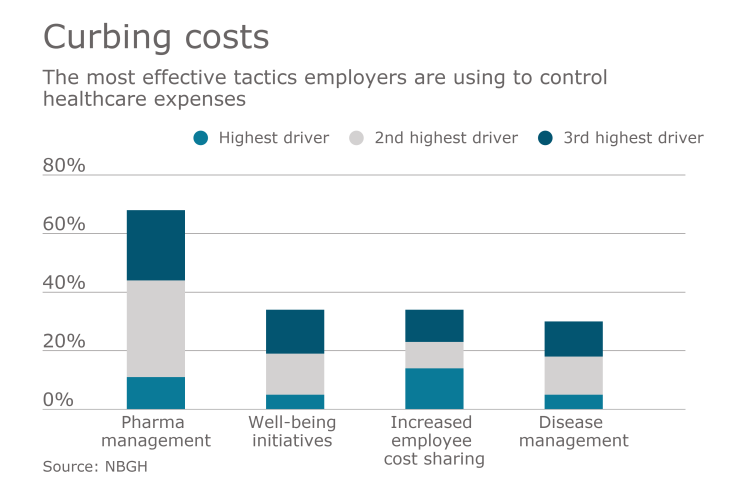Migraines are a chronic, neurological disease — and while they are so much more than just a headache, they are causing some real pains for employers with workers who suffer.
Employers are taking on more than just the costs of medical treatments for employees suffering from migraine symptoms — in addition, time lost at work are substantially impacting employers, according to new findings in a study released by the Integrated Benefits Institute (IBI), a non-profit focused on health and productivity.
IBI’s analysis of Agency for Health Research and Quality (AHRQ) survey data found that from 2011 to 2015, employees treated for migraines had higher healthcare costs on average than employees without migraine treatments — a difference of about $2,000 per year.

Employees treated for migraines also had an average of 2.2 more sick days per year, at a cost of almost $600 in wages and benefits.
“Migraine is important for employers to address because of its negative impact on productivity. But new treatment options make it one chronic condition that they can actually do something about to help workers stay on the job and keep performing at a high level,” says Brian Gifford, director of research and analytics for IBI.
Companies that offer healthcare benefits, paid sick days and disability insurance benefits can expect about $84,000 in annual migraine-related costs for every 1,000 people employed, the report noted — and nearly one-third of these costs are for lost work time due to migraines.
“Hopefully employers will take productivity into account when they consider adding new treatment options to their benefit plans and workplace policies that help people with migraines stay on the job,” Gifford adds. These can deliver not only cost savings for the company, but improved health and well-being for their employees.”
According to the report, the numbers may not be as high as they really are. For instance, 14% of U.S. workers reported migraine, but only 3% received migraine treatment.
“Employers should consider strategies to prevent migraines from happening,” adds Thomas Parry, IBI President. “By providing the right coverage and supporting adherence, employers and their employees won’t suffer missed work time, reduced performance at work and all the costs that go with them.”





